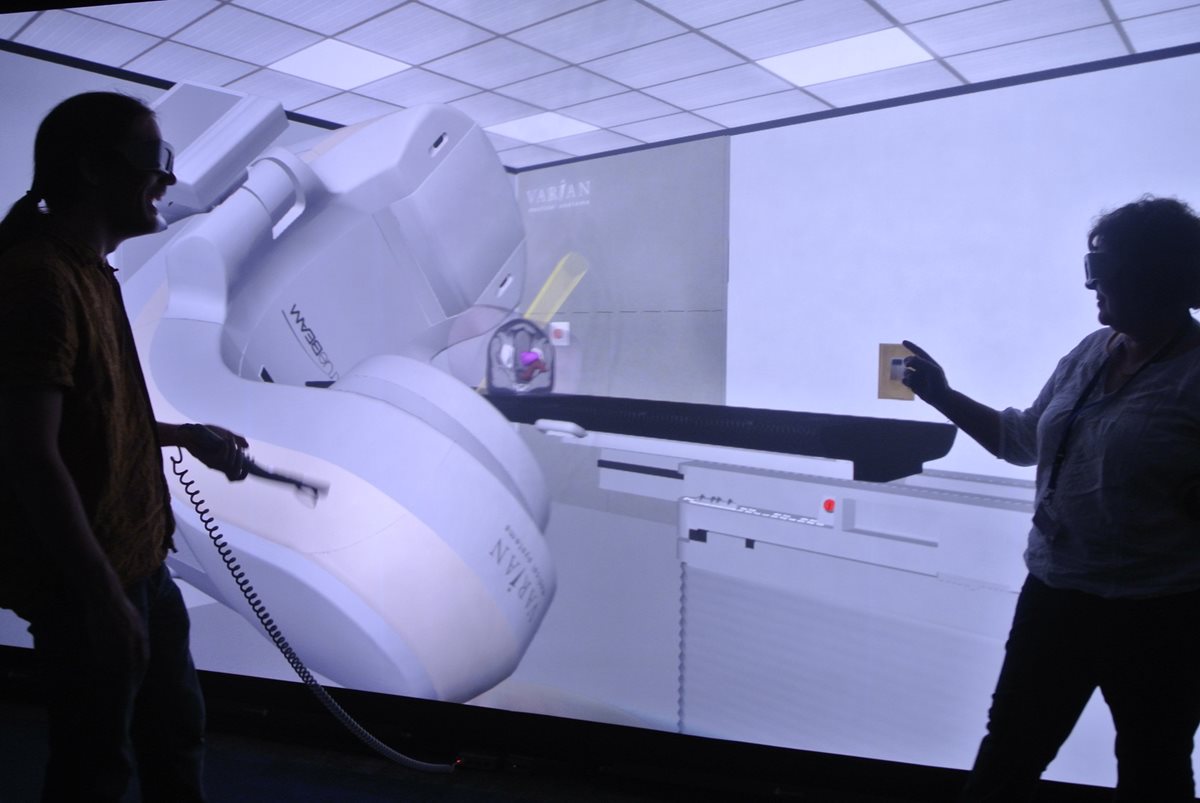An ambitious initiative which will see first year students substitute half their clinical placement time in a simulated environment will be undertaken by Liverpool University this autumn, in a bid to reduce the burden on radiotherapy departments in the future.
The initiative, ‘Developing learning through simulation: Using virtual environments to reduce clinical placement pressures’, will be supported with money from the Challenge Fund, following a successful bid to support existing and new AHP students.
Therapeutic radiography and other disciplines have been identified as vulnerable because of decreasing recruitment and retention in higher education courses.
Pete Bridge, admissions tutor for radiotherapy and the initiative’s lead said, “We are hoping that by extending the virtual simulation facilities and resource that we have, we can not only provide a more attractive offering to potential students but that we can also reduce attrition by improving the student experience.
“We are also evaluating the potential of simulated placements to reduce the required clinical placement time, while still enabling students to attain the standards of proficiency,” he continued.
The university will compare two parallel student groups in a controlled and blind assessment using an independent assessor. They will then swap groups, so that both have equivalent simulated and clinical time.
“This will be the first evidence related to achieving clinical outcomes using simulated placements and this project will potentially impact how we teach, how we assess and how we make the best use of our resources throughout radiotherapy training,” Pete Bridge said.
“We want to create evidence, resources and guidelines for other HEIs to use, so that they will be able to pick up our model and offer the same learning to their students.”
The virtual placement will include the equipment, processes, communication and teamworking with colleagues and interactions with patients. A combination of paid actors and service users will be brought in to play patients, colleagues and staff members, and help create an authentic clinical environment.
“We are aiming for at least equivalence between the two groups,” Pete said.
“If we fail to determine a difference between them then we know that for those learning outcomes there is a clear role for simulation. The best outcome would be if the students in simulation achieve better results.
“It is important to reiterate that this project is not aiming to completely replace clinical placement but if this initiative is successful, then we can reduce the pressure on departments and make better use of clinical placement time in the future. It’s about making the optimum use of the time available and ensuring that students do not use clinical placement time learning basic skills that can be gained in the academic environment.
“The Challenge Fund award has made all the difference because without it we would have struggled to develop the innovative additional resources that we will need to develop and to formally evaluate the initiative. We are also grateful for the enthusiastic support provided by VERTUAL who have a strong association with research-based innovation,” Pete commented.
The Challenge Fund is part of the strategic interventions in health education disciplines (SIHED) programme, which launched in March 2018. The SIHED programme will provide a total of £3million funding over three years to national initiatives that support demand and improve student retention to enhance the sustainability of small, specialist and vulnerable pre-registration courses at higher education providers, including therapeutic radiography.
